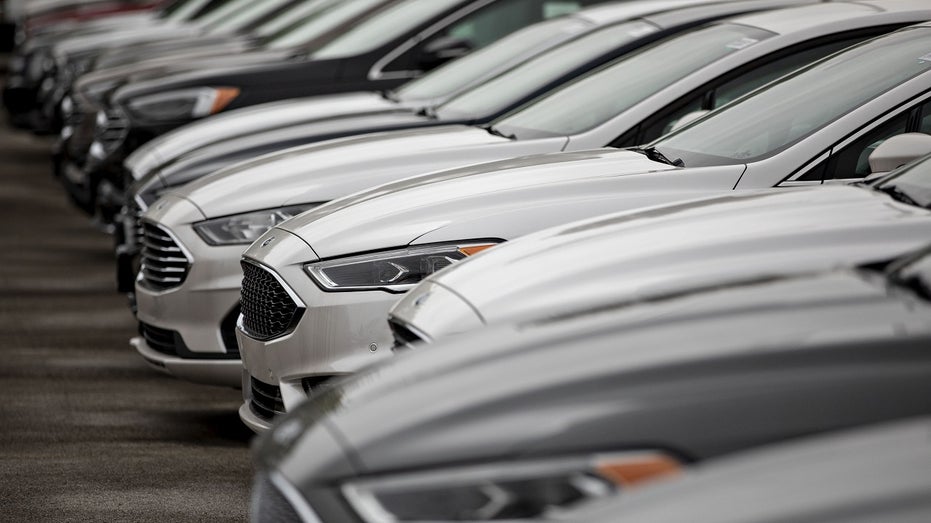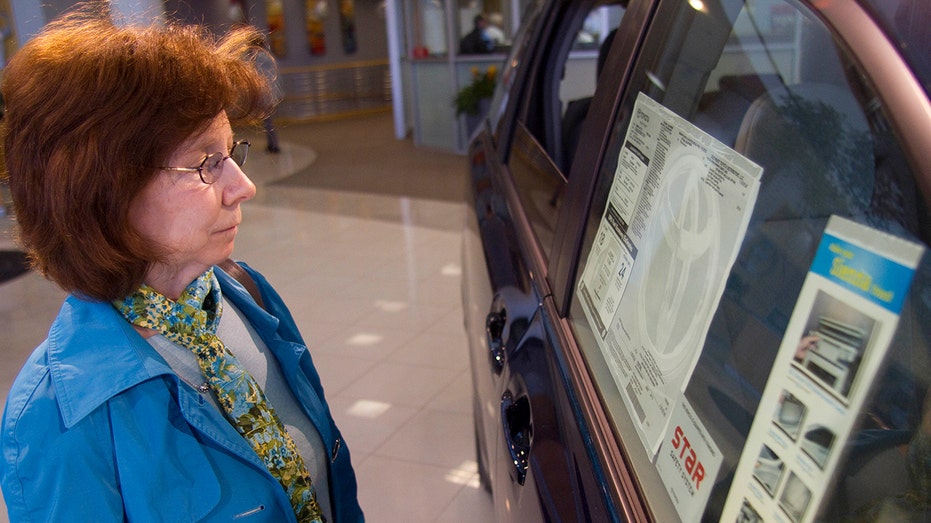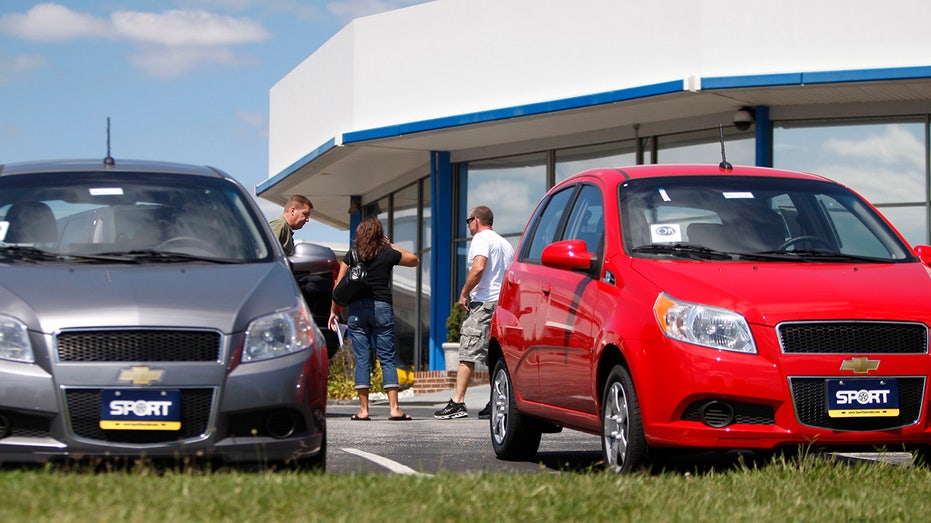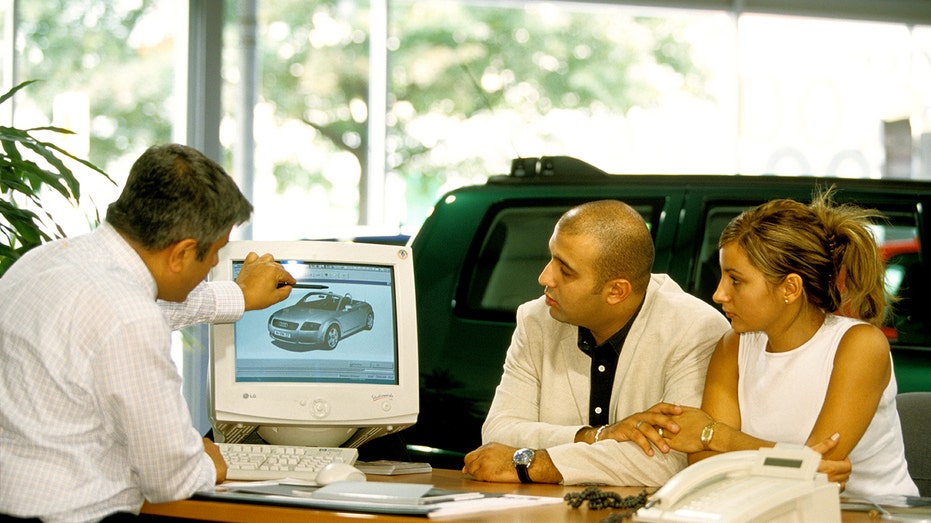Buying a car? These tips will help you drive off the lot knowing you scored a good deal
Doing your research and knowing your numbers are key to a successful sale
Sticker shock is setting in for American car buyers
Ramsey Solutions financial expert Chris Hogan on the impact of the rising cost of cars on American consumers.
Americans increasingly prioritize one factor when buying or leasing a car: affordability.
It’s important to scour the market to make sure you’re getting the best deal. Between higher prices and dozens of different models, makes and lenders, it’s easy to get overwhelmed by everything you see.
Before you start signing contracts, consider these tips.

Before stepping foot in a dealership, make sure you've done your research. (Daniel Acker/Bloomberg via Getty Images / Getty Images)
COMMON CAR BUYING MISTAKES TO AVOID
- Do your homework
- Know your numbers
- Used cars may not be cheaper in the long run
- Buy a new car right before the new model comes out
- When you’re ready to buy, negotiate
- Know that the price is not always the price
- Bring someone with you
1. Do your homework
Before you set foot in a dealership, make sure you’ve asked yourself the right questions. Do you want a used or new car? How much do you want to spend? Do you want a coupe, sedan, SUV, truck or convertible? What technological features are important to you?
After researching the type of car you want, you should look for the right financing options, research what a fair trade-in value is for your vehicle and use an auto loan calculator to decide whether purchasing or leasing is right for you. Only then should you start comparing dealers for the best price.
Some people like to visit dealers early on to test drive a car and learn more about options, but never buy without doing your research first. Purchasing a vehicle is far less stressful when you’re informed and not under pressure to buy now.

Research you should do before buying a car includes figuring out what kind of car you want and how much you're willing to spend. (iStock / iStock)
SAVE MONEY WHEN BUYING A CAR WITH THESE 3 TIPS, ACCORDING TO STUDY
You can learn about features and pricing by looking at manufacturer websites, vehicle reliability reports and car comparison sites like Edmunds, Kelley Blue Book or TrueDelta. Also, always test drive a vehicle before buying or leasing.
To make things easier for you, don’t head into the dealership until you have a pretty good idea of the car you want to buy. That doesn’t mean you can’t, or shouldn’t test drive others, but things can get extremely overwhelming if you walk in with no idea what you’re looking for.
2. Know your numbers
With more than 100 million Americans with auto loans, choosing the right financing is an important part of the process. But before you find an auto lender, you should know what interest rate they are offering.
Don’t just go with the first option you are given. Shop around first until you find the best rate for you. A slight difference may not seem like much at first, but a slightly lower rate can save you a ton of money long term.
PROS AND CONS OF BUYING A CAR WITH A CREDIT CARD

Once you go to the dealership, stick to your budget and know what you're looking for. (Jim R. Bounds/Bloomberg via Getty Images / Getty Images)
Most manufacturer financing is pretty competitive, but consumers should also consider other options, like credit unions or hybrid balloon financing options that can offer lower monthly payments and more flexibility at the end of the term.
3. Used cars may not be cheaper in the long run
The primary difference between purchasing a new versus a used car is cost. While purchasing a used vehicle can make a lot of sense in the short term, you have to keep in mind the potential long-term maintenance and repair costs that come with owning a used vehicle.
Always consider the mileage on a used car before buying. If this number is too high, you’re likely going to be paying a lot of repair costs while you own the vehicle. In cases like this, it may have actually made more sense and saved more money to buy the more expensive new car.
Also, keep in mind that some cars last longer than others. Again, this is why research is so important. Before purchasing a used car with higher mileage, take a look at how long that particular car usually runs for and be sure it's going to last you.
3 SIGNS IT'S TIME TO BUY A NEW CAR

Car buying is also about timing. Consider visiting a dealership toward the end of the month or in December for potential deals. (REUTERS/Jason Reed / Reuters Photos)
4. Buy a new car right before the new model comes out
Car prices — especially for new cars — aren’t stable throughout the year. If you time your purchase right, you might find that buying a new car makes the most financial sense. Buying the first 2024 model available will always cost you more than buying the last 2013 model on the lot.
You’ll find better deals on this year’s model when dealers are trying to clear them out to make room for next year’s model. The best time to buy is in December, when dealers are trying to clear out their lots to make room for next year’s models (and also at the end of every month, when dealers are trying to make quotas).
5. When you’re ready to buy, negotiate
Everything is negotiable, especially cars. Never commit to a payment on a vehicle before negotiating. Understand the value of vehicle protection products like MBP, GAP, prepaid maintenance and other optional coverages.
Always know your nonnegotiables — the things you aren’t willing to compromise on. This could be anything from a maximum monthly payment, leather seats or car color. Always be willing to walk away if your nonnegotiables aren’t being met.
GET FOX BUSINESS ON THE GO BY CLICKING HERE

Before signing any papers, make sure to triple check there are no unwanted add-ons in the price. (Yavuz Arslan/ullstein bild via Getty Images / Getty Images)
6. Know that the price is not always the price
Once you negotiate the price of the car, then you negotiate financing. Financing includes add-ons like warranty, rust protection, tire protection and oil change services. You don’t have to purchase any of these, but if you’re financing, all of these will increase the negotiated price.
Before buying, make sure to look into all of these things and any other extra add-ons that may have been slipped in so that you don’t end up paying for something you don’t want.
7. Bring someone with you
Walking into a car dealership on your own can be daunting, so bring a friendly face with you. It can be helpful to have someone to talk to while you are at the dealership who can help you make this huge decision.
Also, bring someone who is good at negotiating and knows a lot about vehicles if you aren’t an expert, so they can be sure you aren’t getting scammed into a purchase.
Ivan McBride is vice president of automotive lending products and sales at PenFed Credit Union.




















